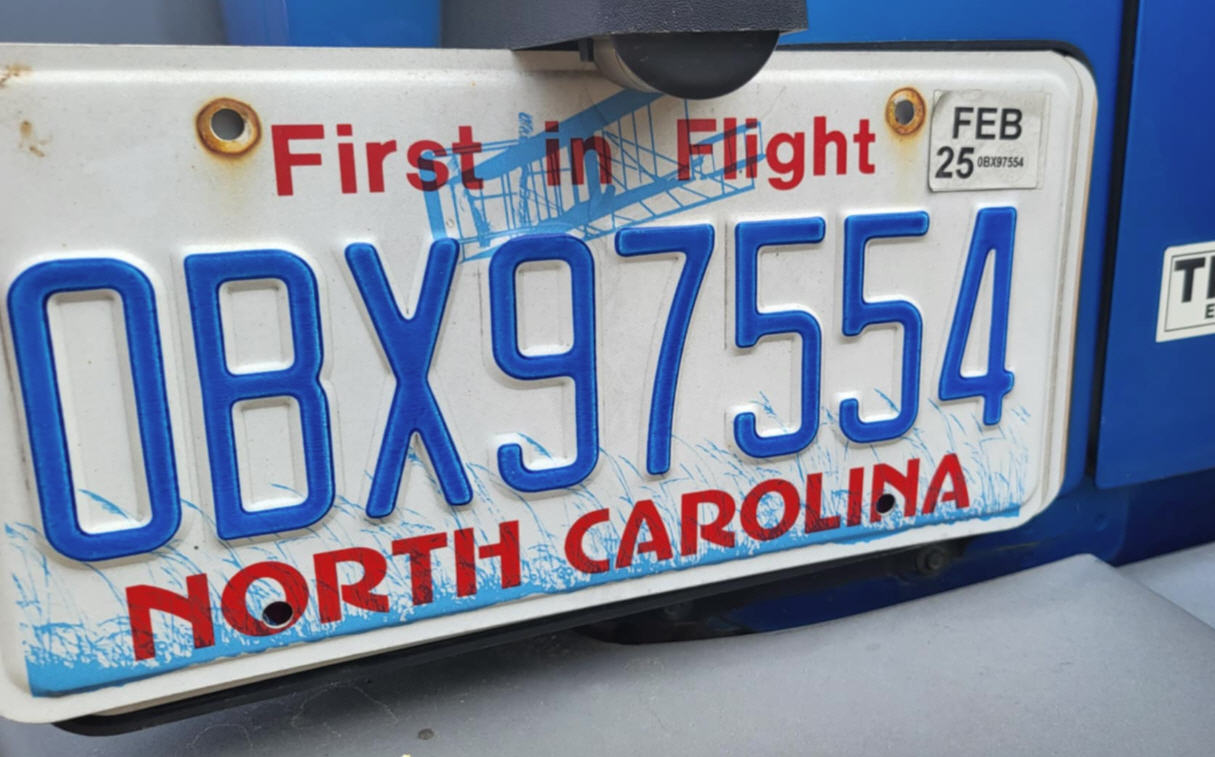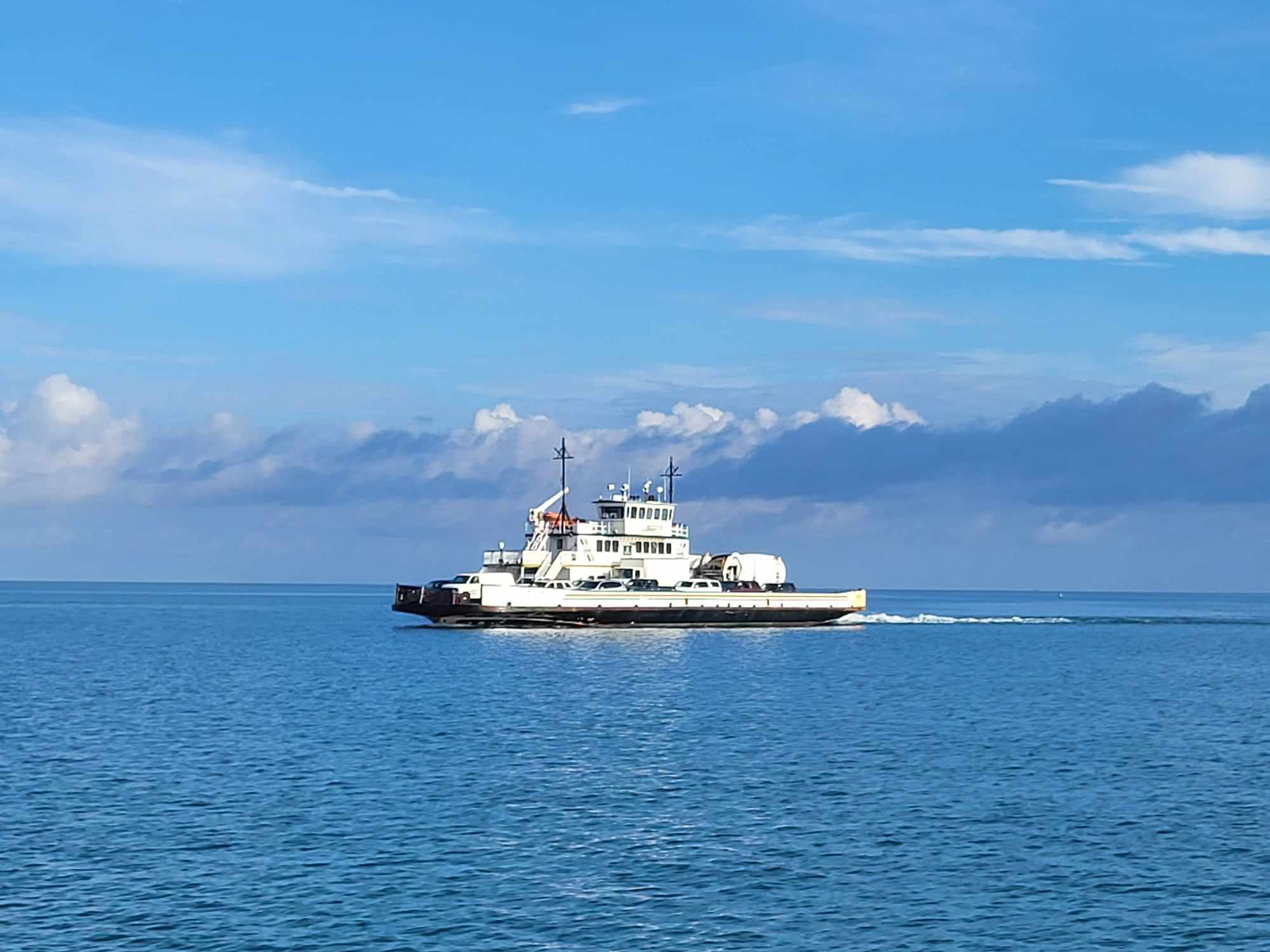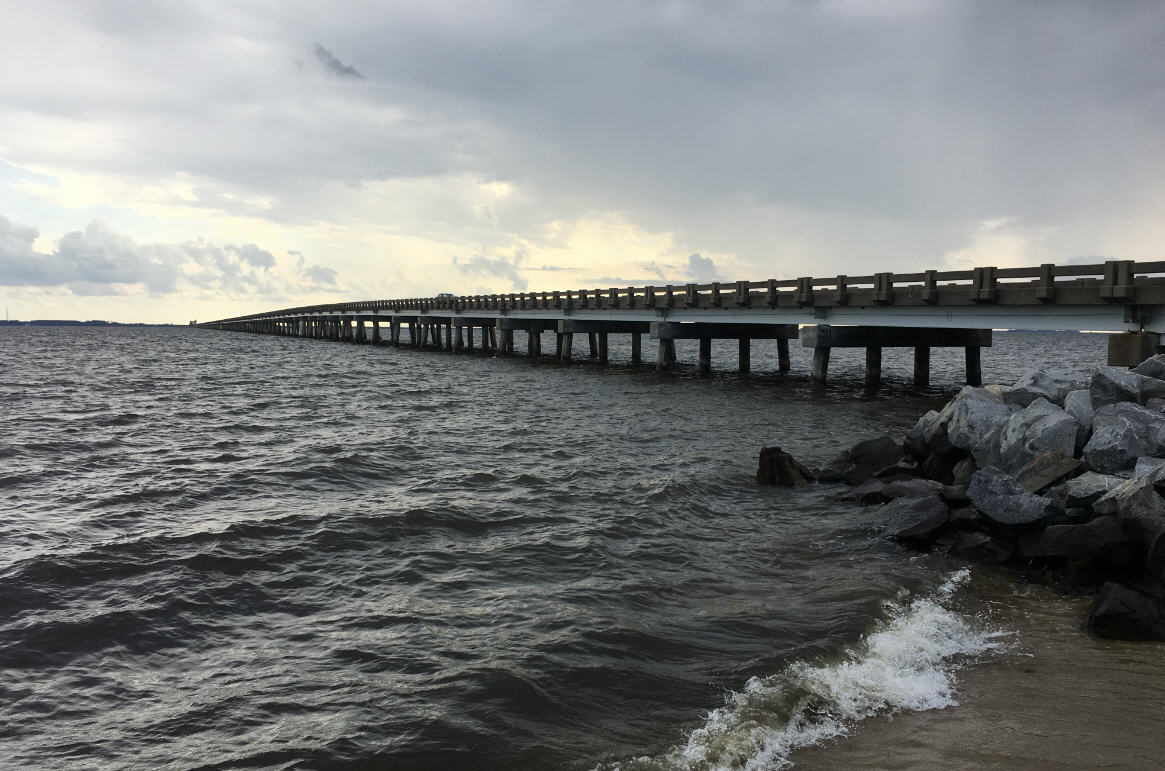UPDATE: Jones’ bill to set aside ORV plan passes in U.S. House By IRENE NOLAN
UPDATE: Jones’ bill to set aside ORV plan passes in U.S. House
By IRENE NOLAN
By IRENE NOLAN
By IRENE NOLAN
H.R. 4094, which sets aside the Park Service’s off-road vehicle plan and final rule at the Cape Hatteras National Seashore passed in the U.S. House of Representatives this afternoon by a vote of 232-188.
The bill, introduced by U.S. Rep. Walter Jones, R-N.C., was one of 14 bills that passed as H.R. 2578 – the Conservation and Economic Growth Act.
The bill passed largely along party lines, with Republicans favoring passage and Democrats opposing. However, 19 Republicans voted against the bill, while 16 Democrats voted for it.
“This grouping of bills will advance important local projects and policies that will have a direct impact on job creation and economic growth in communities throughout the country. The majority of these bills have received bipartisan support and encourage tourism, recreation, and responsible use of our public lands and resources,” said House Natural Resources Committee Chairman Doc Hastings in announcing today’s session.
Today’s floor action on the legislation began at noon with almost an hour and a half of consideration of procedural rules, including rules for the debate and amendments.
The debate on the bills was limited to 90 minutes, with the number of amendments limited and debate on amendments limited to 10 minutes.
Although the afternoon dragged on until the final vote at about 5:40 p.m., Jones’ legislative director, Joshua Bowlen, said this was the “quick version” of passing legislation.
“It’s a great step forward,” Bowlen said, “though there are still hurdles to overcome.”
Those hurdles will apparently come in the Senate, controlled by Democrats, who were outspoken in their opposition to many of the bills in the Conservation and Economic Growth Act, especially one dealing with control of the U.S. borders.
H.R. 2578 now moves forward to the Senate, where several Democratic Congressmen declared today on the House floor it has “zero” chance of passage.
However, a companion bill to H.R. 4094 will have a hearing, along with 10 other National Park Service bills, in the Senate Committee on Energy and Natural Resources next Wednesday, June 27, at 3 p.m.
The bill, S 2372, was introduced on April 26 by U.S. Sen. Richard Burr, R-N.C., and is co-sponsored by U.S. Sen. Kay Hagan, D-N.C. The title of the bill is the Preserving Public Access to Cape Hatteras Beaches Act, and it is identical to the House bill.
It is good, Bowlen said, that the bill has bi-partisan support in the Senate and the support of North Carolina Gov. Beverly Perdue.
“If you would have asked me some time ago, I would have said all those were long shots,” Bowlen said today.
Even if the Senate rejects H.R. 2578, there are other avenues to get the legislation overturning the final ORV rule passed in the Senate and signed into law.
“There are still any number of ways to skin the cat,” Bowlen said.
H.R. 4094 got much less air time on the House floor today than many of the other bills that sparked a more partisan debate.
“This bill would protect resources and open up more access to the seashore,” Jones said today when he spoke on the floor.
He said it would reopen 26 miles of beach now permanently closed to ORVs and would “reverse job loss and economic decline that Hatteras Island has experienced.”
“It’s time to return access to taxpayers,” he said. “This is a balanced piece of legislation.”
Jones’ bill would return management of the seashore to the publicly vetted 2007 Interim Protected Species Management plan, which Jones noted was backed by a biological opinion from the U.S. Fish and Wildlife Service.
Under the legislation, the seashore would operate under the interim plan until the Secretary of the Department of the Interior and Director of the National Park Service devise a new final regulation that provides more reasonable access.
H.R. 4094, which sets aside the Park Service’s off-road vehicle plan and final rule at the Cape Hatteras National Seashore passed in the U.S. House of Representatives this afternoon by a vote of 232-188.
The bill, introduced by U.S. Rep. Walter Jones, R-N.C., was one of 14 bills that passed as H.R. 2578 – the Conservation and Economic Growth Act.
The bill passed largely along party lines, with Republicans favoring passage and Democrats opposing. However, 19 Republicans voted against the bill, while 16 Democrats voted for it.
“This grouping of bills will advance important local projects and policies that will have a direct impact on job creation and economic growth in communities throughout the country. The majority of these bills have received bipartisan support and encourage tourism, recreation, and responsible use of our public lands and resources,” said House Natural Resources Committee Chairman Doc Hastings in announcing today’s session.
Today’s floor action on the legislation began at noon with almost an hour and a half of consideration of procedural rules, including rules for the debate and amendments.
The debate on the bills was limited to 90 minutes, with the number of amendments limited and debate on amendments limited to 10 minutes.
Although the afternoon dragged on until the final vote at about 5:40 p.m., Jones’ legislative director, Joshua Bowlen, said this was the “quick version” of passing legislation.
“It’s a great step forward,” Bowlen said, “though there are still hurdles to overcome.”
Those hurdles will apparently come in the Senate, controlled by Democrats, who were outspoken in their opposition to many of the bills in the Conservation and Economic Growth Act, especially one dealing with control of the U.S. borders.
H.R. 2578 now moves forward to the Senate, where several Democratic Congressmen declared today on the House floor it has “zero” chance of passage.
However, a companion bill to H.R. 4094 will have a hearing, along with 10 other National Park Service bills, in the Senate Committee on Energy and Natural Resources next Wednesday, June 27, at 3 p.m.
The bill, S 2372, was introduced on April 26 by U.S. Sen. Richard Burr, R-N.C., and is co-sponsored by U.S. Sen. Kay Hagan, D-N.C. The title of the bill is the Preserving Public Access to Cape Hatteras Beaches Act, and it is identical to the House bill.
It is good, Bowlen said, that the bill has bi-partisan support in the Senate and the support of North Carolina Gov. Beverly Perdue.
“If you would have asked me some time ago, I would have said all those were long shots,” Bowlen said today.
Even if the Senate rejects H.R. 2578, there are other avenues to get the legislation overturning the final ORV rule passed in the Senate and signed into law.
“There are still any number of ways to skin the cat,” Bowlen said.
H.R. 4094 got much less air time on the House floor today than many of the other bills that sparked a more partisan debate.
“This bill would protect resources and open up more access to the seashore,” Jones said today when he spoke on the floor.
He said it would reopen 26 miles of beach now permanently closed to ORVs and would “reverse job loss and economic decline that Hatteras Island has experienced.”
“It’s time to return access to taxpayers,” he said. “This is a balanced piece of legislation.”
Jones’ bill would return management of the seashore to the publicly vetted 2007 Interim Protected Species Management plan, which Jones noted was backed by a biological opinion from the U.S. Fish and Wildlife Service.
Under the legislation, the seashore would operate under the interim plan until the Secretary of the Department of the Interior and Director of the National Park Service devise a new final regulation that provides more reasonable access.
H.R. 4094, which sets aside the Park Service’s off-road vehicle plan and final rule at the Cape Hatteras National Seashore passed in the U.S. House of Representatives this afternoon by a vote of 232-188.
The bill, introduced by U.S. Rep. Walter Jones, R-N.C., was one of 14 bills that passed as H.R. 2578 – the Conservation and Economic Growth Act.
The bill passed largely along party lines, with Republicans favoring passage and Democrats opposing. However, 19 Republicans voted against the bill, while 16 Democrats voted for it.
“This grouping of bills will advance important local projects and policies that will have a direct impact on job creation and economic growth in communities throughout the country. The majority of these bills have received bipartisan support and encourage tourism, recreation, and responsible use of our public lands and resources,” said House Natural Resources Committee Chairman Doc Hastings in announcing today’s session.
Today’s floor action on the legislation began at noon with almost an hour and a half of consideration of procedural rules, including rules for the debate and amendments.
The debate on the bills was limited to 90 minutes, with the number of amendments limited and debate on amendments limited to 10 minutes.
Although the afternoon dragged on until the final vote at about 5:40 p.m., Jones’ legislative director, Joshua Bowlen, said this was the “quick version” of passing legislation.
“It’s a great step forward,” Bowlen said, “though there are still hurdles to overcome.”
Those hurdles will apparently come in the Senate, controlled by Democrats, who were outspoken in their opposition to many of the bills in the Conservation and Economic Growth Act, especially one dealing with control of the U.S. borders.
H.R. 2578 now moves forward to the Senate, where several Democratic Congressmen declared today on the House floor it has “zero” chance of passage.
However, a companion bill to H.R. 4094 will have a hearing, along with 10 other National Park Service bills, in the Senate Committee on Energy and Natural Resources next Wednesday, June 27, at 3 p.m.
The bill, S 2372, was introduced on April 26 by U.S. Sen. Richard Burr, R-N.C., and is co-sponsored by U.S. Sen. Kay Hagan, D-N.C. The title of the bill is the Preserving Public Access to Cape Hatteras Beaches Act, and it is identical to the House bill.
It is good, Bowlen said, that the bill has bi-partisan support in the Senate and the support of North Carolina Gov. Beverly Perdue.
“If you would have asked me some time ago, I would have said all those were long shots,” Bowlen said today.
Even if the Senate rejects H.R. 2578, there are other avenues to get the legislation overturning the final ORV rule passed in the Senate and signed into law.
“There are still any number of ways to skin the cat,” Bowlen said.
H.R. 4094 got much less air time on the House floor today than many of the other bills that sparked a more partisan debate.
“This bill would protect resources and open up more access to the seashore,” Jones said today when he spoke on the floor.
He said it would reopen 26 miles of beach now permanently closed to ORVs and would “reverse job loss and economic decline that Hatteras Island has experienced.”
“It’s time to return access to taxpayers,” he said. “This is a balanced piece of legislation.”
Jones’ bill would return management of the seashore to the publicly vetted 2007 Interim Protected Species Management plan, which Jones noted was backed by a biological opinion from the U.S. Fish and Wildlife Service.
Under the legislation, the seashore would operate under the interim plan until the Secretary of the Department of the Interior and Director of the National Park Service devise a new final regulation that provides more reasonable access.
H.R. 4094, which sets aside the Park Service’s off-road vehicle plan and final rule at the Cape Hatteras National Seashore passed in the U.S. House of Representatives this afternoon by a vote of 232-188.
The bill, introduced by U.S. Rep. Walter Jones, R-N.C., was one of 14 bills that passed as H.R. 2578 – the Conservation and Economic Growth Act.
The bill passed largely along party lines, with Republicans favoring passage and Democrats opposing. However, 19 Republicans voted against the bill, while 16 Democrats voted for it.
“This grouping of bills will advance important local projects and policies that will have a direct impact on job creation and economic growth in communities throughout the country. The majority of these bills have received bipartisan support and encourage tourism, recreation, and responsible use of our public lands and resources,” said House Natural Resources Committee Chairman Doc Hastings in announcing today’s session.
Today’s floor action on the legislation began at noon with almost an hour and a half of consideration of procedural rules, including rules for the debate and amendments.
The debate on the bills was limited to 90 minutes, with the number of amendments limited and debate on amendments limited to 10 minutes.
Although the afternoon dragged on until the final vote at about 5:40 p.m., Jones’ legislative director, Joshua Bowlen, said this was the “quick version” of passing legislation.
“It’s a great step forward,” Bowlen said, “though there are still hurdles to overcome.”
Those hurdles will apparently come in the Senate, controlled by Democrats, who were outspoken in their opposition to many of the bills in the Conservation and Economic Growth Act, especially one dealing with control of the U.S. borders.
H.R. 2578 now moves forward to the Senate, where several Democratic Congressmen declared today on the House floor it has “zero” chance of passage.
However, a companion bill to H.R. 4094 will have a hearing, along with 10 other National Park Service bills, in the Senate Committee on Energy and Natural Resources next Wednesday, June 27, at 3 p.m.
The bill, S 2372, was introduced on April 26 by U.S. Sen. Richard Burr, R-N.C., and is co-sponsored by U.S. Sen. Kay Hagan, D-N.C. The title of the bill is the Preserving Public Access to Cape Hatteras Beaches Act, and it is identical to the House bill.
It is good, Bowlen said, that the bill has bi-partisan support in the Senate and the support of North Carolina Gov. Beverly Perdue.
“If you would have asked me some time ago, I would have said all those were long shots,” Bowlen said today.
Even if the Senate rejects H.R. 2578, there are other avenues to get the legislation overturning the final ORV rule passed in the Senate and signed into law.
“There are still any number of ways to skin the cat,” Bowlen said.
H.R. 4094 got much less air time on the House floor today than many of the other bills that sparked a more partisan debate.
“This bill would protect resources and open up more access to the seashore,” Jones said today when he spoke on the floor.
He said it would reopen 26 miles of beach now permanently closed to ORVs and would “reverse job loss and economic decline that Hatteras Island has experienced.”
“It’s time to return access to taxpayers,” he said. “This is a balanced piece of legislation.”
Jones’ bill would return management of the seashore to the publicly vetted 2007 Interim Protected Species Management plan, which Jones noted was backed by a biological opinion from the U.S. Fish and Wildlife Service.
Under the legislation, the seashore would operate under the interim plan until the Secretary of the Department of the Interior and Director of the National Park Service devise a new final regulation that provides more reasonable access.
Subject
Name
(required, will not be published)
(required, will not be published)
City :
State :
Your Comments:
May be posted on the Letters to the Editor page at the discretion of the editor.
May be posted on the Letters to the Editor page at the discretion of the editor.
May be posted on the Letters to the Editor page at the discretion of the editor.
May be posted on the Letters to the Editor page at the discretion of the editor.








